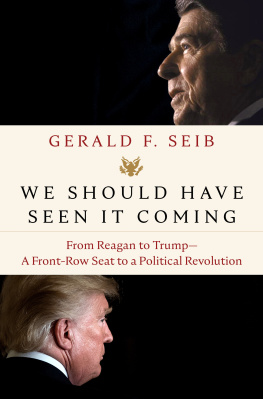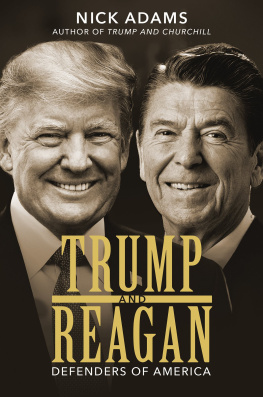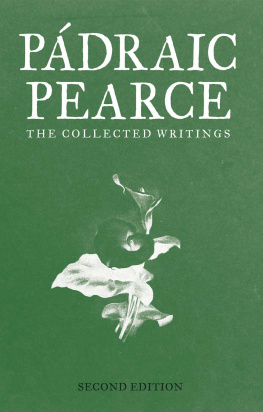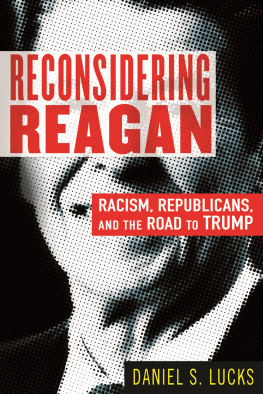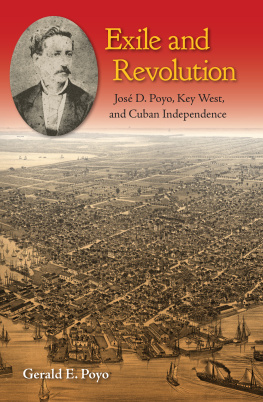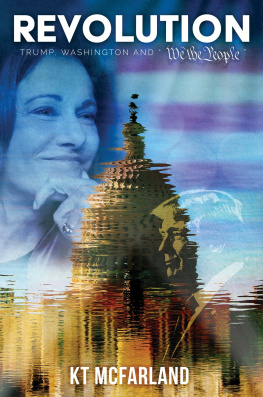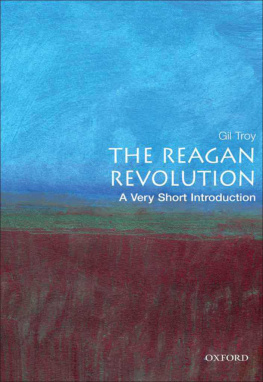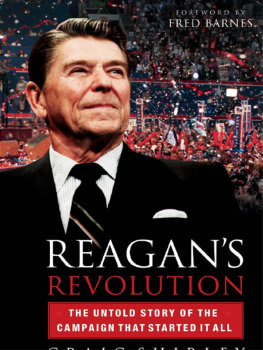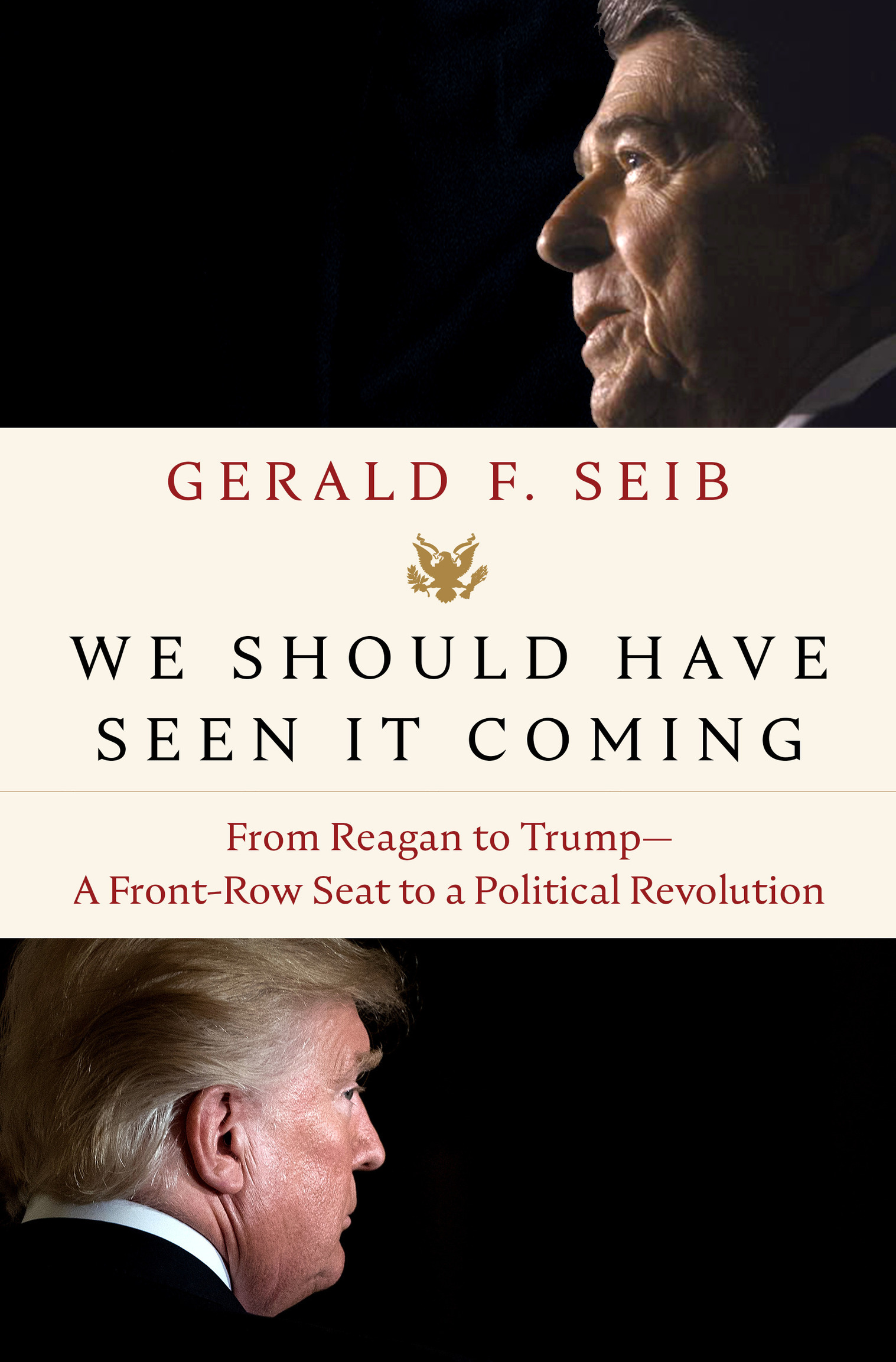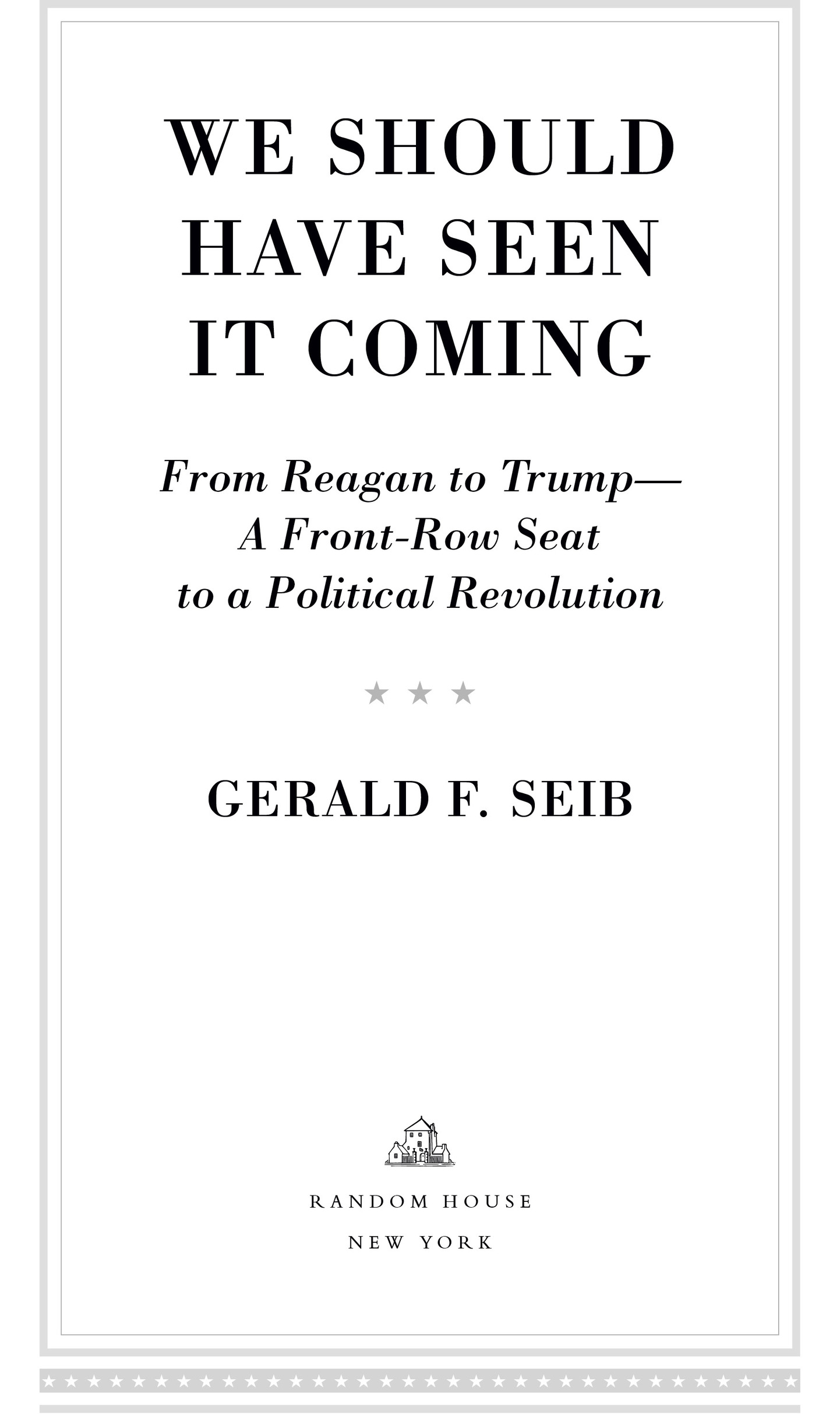Copyright 2020 by Gerald F. Seib
All rights reserved.
Published in the United States by Random House, an imprint and division of Penguin Random House LLC, New York.
R ANDOM H OUSE and the H OUSE colophon are registered trademarks of Penguin Random House LLC.
Cover photographs: Getty/Dirck Halstead (Ronald Reagan), Getty/Brendan Smialowski (Donald Trump)
Preface
We all should have seen it coming.
For almost four decades, the Republican Party had been defined by a man, Ronald Reagan, and his movement, the Reagan Revolution. Reagan was the most unlikely of revolutionary figures, a modestly successful actor with a self-effacing style and no intellectual pretensions. Yet he personally had made the Republican Party into a conservative party, and his legacy continued to inspire the movements leaders, animate its policy debates, and stir its voters emotions long after he left the scene.
Over time, however, emerging signschief among them grassroots anger at the political and financial establishments and frustration over the impact of conservative policies on the partys new working-class basesuggested that the foundation Reagan had built was starting to crack, though those signs were largely ignored or dismissed. Finally, the foundation collapsed. In fact, its possible to pinpoint the moment when Republicans closed the door on the Reagan Revolution and opened the door to a new era, the populist and nationalist era of Donald Trump. It came on the evening of July 20, 2016, when Senator Ted Cruz strode to the podium at the Republican National Convention at Quicken Loans Arena, in Cleveland.
Cruz, a tall and striking figure with a shock of jet-black hair, a perpetually intense air, and the kind of self-assured oratorical style born of years as a college debater, was there to deliver a concession speech, acknowledging that he had lost a bitter nomination fight to Trump. The arena floor was crowded and buzzing in anticipation. Like boxing fans bored by the preliminary fights and eager to see the main card, delegates were milling around restlessly, waiting for the Cruz speech to begin. As he waited behind stage, text of his speech tucked into his pocket, Cruz wasnt sure exactly what he was heading into, though he sensed it might be dramatic.
Cruz had arrived in Cleveland after running for president explicitly as the heir to Ronald Reagan. Indeed, Ted Cruz loved Reagan, and had been preparing to follow in his footsteps his entire life.
One of Cruzs most vivid early memories was, as a nine-year-old, cheering on from afar as Reagan debated President Jimmy Carter in the 1980 presidential campaign. As the son of a Cuban migr, Cruz admired Reagans staunch anti-Communism, his embrace of free markets, his vision of America as a shining city on a hill that attracted people from around the globe.
The senators father, Rafael, had been a young pro-Castro revolutionary in Cuba. After being jailed and beaten by soldiers of Cubas old Batista regime, he fled to the United States in 1957 with nothing but a hundred dollars his mother had sewn into his underwear.
Two years later, after Castro had taken over, Rafael returned to Cuba for a visit and was horrified at what he saw as the tyranny of the countrys new Communist government. Rafael Cruz became an ardent anti-Communist. In his new home in America, he naturally became a champion of the most anti-Communist party he saw on the scene, the Republican Party. Ive joked that in a Cuban household, there were two parties, the Republicans and the Communists, Ted Cruz says now. That is only somewhat tongue in cheek.
Cruz remembers growing up in a home that was passionately political. There was an urgency about politics, Ted Cruz recalls. You didnt just read the newspaper or watch the news and go, Oh, thats interesting. Cruzs aunt Sonia had fought in the counterrevolution against the Castro regime and was thrown in prison and tortured for doing so, and that pain burned bright within the family. What I heard growing up, Cruz says, is that having principled men and women in office is how we protect ourselves from tyranny. And so, as a little boy, if youd asked me, What do you want to do in life? I would have said, I want to defend freedom.
When Reagan won that 1980 presidential election, launching a conservative wave that would become the most powerful force in American politics, Cruz knew he wanted to be part of it. I think there is an entire generation of conservatives for whom Ronald Wilson Reagan will always be our president, in much the same way the World War II generation referred to FDR as our president, he says.
He was ardent in his beliefs and the way he expressed them; indeed, some considered him obnoxious in his certitude and self-confidence. He entered Princeton University, and one of his roommates there would later recall Cruz saying his lifes goal was to become like Ronald Reagana principled conservative and great communicator. He became a star debater at Princeton and then a top law student at Harvard. His outsider status as an outspoken conservative in largely liberal institutions didnt bother him. He reveled in it.
After law school at Harvard, he entered private practice, but he also worked on the presidential campaign of George W. Bush in 2000. He then became Texass solicitor general, effectively the states top lawyer. His entry into elective politics was typically audacious: In his first run for public office, in 2012, he defeated a far more entrenched Texas Republican to win a seat in the United States Senate.
After that victory, he was approached by Stephan Penley, an artist who does patriotic art, who offered to create a painting of Reagan for Cruzs Senate office. Cruz accepted, and commissioned a painting of the iconic moment when Ronald Reagan stood at the Berlin Wall and beseeched the leader of the Soviet Union to tear down this wall. The resulting piece, a ten-foot-long monster, hangs in a place of honor in Cruzs Senate office.
So, heading into the 2016 presidential campaign, if there was anybody who thought himself entitled to claim the Reagan mantle, it was Ted Cruz. In his announcement speech, he specifically harked back to Reagans successful 1980 presidential campaign. He invoked Reagan regularly.
Others in a crowded Republican field, who thought they themselves had pretty good records as lovers of Ronald Reagan, chafed at Cruzs claiming of the Reagan legacy for himself. Yet Cruz seemed to fit into Reagans footsteps pretty well. Many in the old Reagan coalition and the conservative old guard did, in fact, line up behind him: David Keene, who worked for Reagan as long ago as 1976 and later ran the American Conservative Union, backed Cruz, as did longtime conservative fundraising wizard Richard Viguerie, who thought Cruz would march to the nomination.
But it was not to be. As Ted Cruz and the rest of the world learned in 2016, the Republican Party had changed. It had become more blue-collar, more rooted in rural and small-town America, more disillusioned with the existing party establishment, more skeptical of free-market economics and global trade, more anti-immigration, and simply more angry. Its voters were ready to consider something differentradically different, in fact. They were ready for Donald J. Trump.

